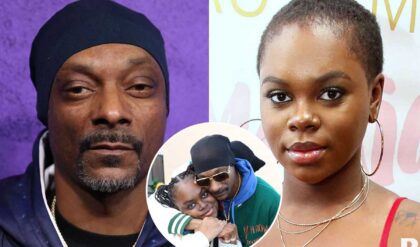Reba McEntire deserves better than blah NBC sitcom ‘Happy’s Place’: Review
I so desperately want to be happy that Reba McEntire is back on network TV.
The country singer and actress anchored one of the most enjoyable sitcoms of the 2000s with “Reba,” about a single mom who works too hard, loves her kids and never stops. The WB show ran for six seasons and 125 episodes, with its dysfunctional but lovable Hart family at the heart of every story Reba and co-stars Melissa Peterman, JoAnna Garcia Swisher, Steve Howey and Christopher Rich told.
So you would think that a new sitcom starring McEntire and Peterman set in a Tennessee bar (hello, “Cheers” aspirations) and with another very dysfunctional family dynamic would be a guarantee of another “Reba”-style good time. Alas, NBC’s “Happy’s Place” (Fridays, 8 EDT/PDT, ★★ out of four) is no “Reba.” It’s just another low-rent sitcom with stale jokes, bland characters and a limp plot. It’s not so much that it’s bad, it’s just so boring, banal and blah. And that is simply not good enough for the likes of three-time Grammy winner McEntire, 69. She deserves scripts that sing just as well as she does.
As the series opens, Bobbie (McEntire) has inherited the Happy’s Place tavern from her late father. The two were close, but after his death, she gets to run the bar the way she wants to with its quirky staff (including Peterman as the overly familiar waitress Gabby) and Tennessee coffee, aka whiskey.
As a concept, a stubborn woman in her 60s who’s forced to collaborate with a 20-something and redefine her own family is a fruitful setup for sitcom plots and deep characters. But “Happy’s” decides to rush through the macro-level implications of Isabella’s arrival and instead moves straight into dumb workplace jokes and tired generational jabs. It’s seemingly seconds between the news of Isabella’s paternity and her becoming a punching bag for jokes about kids these days. The speedy plot might give you whiplash if it wasn’t so tedious as to put you to sleep.
In addition to not spending nearly enough time on the plot, “Happy’s” avoids crafting characters worth caring about. Bobbie is, well, Reba McEntire in a sweater. Two episodes in and there’s not much more to her than her love of whiskey and hatred of Isabella’s intrusion into her life. Isabella is a Gen Z stereotype. And Gabby is seemingly modeled on Peterman’s natural over-the-top gregariousness and her only expression is a squinty smile. Accountant Steve (Pablo Castelblanco) and waiter Takota (Tokala Black Elk) are defined one-dimensionally: Steve is a germaphobe and Takota is stoic. None of them feel remotely human.
Only two episodes of “Happy’s” were made available for review, though the best sitcoms can run for more than 200. But by the second episode of “Friends” you knew who the six main characters really were. By the second “Cheers” the tone was established. Heck, by the second “Reba,” you had fallen in love with the Hart family.
“Happy’s” may find its footing deeper into the season, but it’s hard to argue that anyone stick around that long. Not when there’s a distinct lack of happiness to be found so far.
News
[EMOTIONAL] Snoop Dogg’s Daughter Cori Broadus Makes Fans Cry Recalls Suffering a Stroke in New Special
Snoop Dogg’s Daughter Cori Broadus Details Suffering Stroke While Wedding Planning in New E! Special Snoop Dogg’s daughter Cori Broadus faces a terrifying health scare and major relationship troubles while planning her wedding in first trailer for E!’s Snoop Dogg’s Fatherhood:…
Reba McEntire Fans Call Out Country Star for Perplexing Message
Reba McEntire Fans Call Out Country Star for Perplexing Message on Election Day Many celebrities issued political messages leading up to the 2024 election, but Reba McEntire was not one of them. On Election Day, however, the country star issued a perplexing statement…
[Watch] Reba McEntire Makes A Stuns As She Cozies Up to Boyfriend Rex Linn in Her ‘The Voice’ Chair
Reba McEntire had a special guest on the set of The Voice recently: The first-time coach’s boyfriend and fellow “tot” Rex Linn stopped by. The pair cozied up for a couple of photos in her iconic red chair, and McEntire used the opportunity to solicit votes for…
John Legend Makes A Stun As He Reveals When Blake Shelton Will Return to The Voice
‘The Voice’: John Legend Addresses Whether Blake Shelton Will Ever Return to Show Amy Sussman/Getty Images; Jason Davis/Getty Images) Following Blake Shelton‘s exit from The Voice at the end of Season 23, John Legend is now the longest-tenured coach on the NBC singing competition series. But could…
The $H0CKING Reason Niall Horan Leave ‘The Voice’. Her Is All You Need To Know
Why Did Niall Horan Leave ‘The Voice’ Season 25? Here’s the Real Reason Behind His Exit The former One Direction band member won’t be a judge on the NBC series in 2024. NBC We’ve been independently researching and testing products…
Gwen Stefani Said ‘The Voice’ caused a misunderstanding about she and Blake Shelton relationship
Gwen Stefani Said ‘The Voice’ Edited Footage to Look Like She Was Flirting With Blake Shelton Long Before They Were Together In 2015, both Gwen Stefani and Blake Shelton left their respective marriages. Stefani had wanted to conceal her separation from Gavin Rossdale on…
End of content
No more pages to load











